Filter by
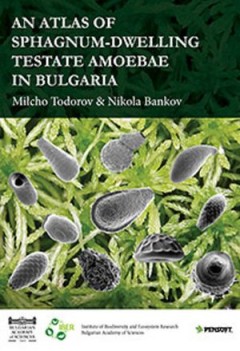
An Atlas of Sphagnum-Dwelling Testate Amoebae in Bulgaria
An Atlas of Sphagnum-Dwelling Testate Amoebae in Bulgaria
- Edition
- -
- ISBN/ISSN
- 9789546429735
- Collation
- -
- Series Title
- -
- Call Number
- -
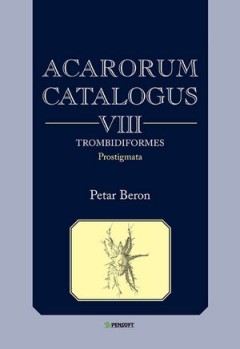
Acarorum Catalogus Viii
The eight volume of this series "Acarorum Catalogus" is devoted to Superfamilia Cheyletoidea (Cheyletidae, Psorergatidae, Demodecidae, Harpyrhynchidae, Syringophilidae) and Superfamilia Cloacaroidea (Cloacaridae, Epimyodicidae). About 1243 species of 177 genera are listed therein, with synonymies and citations in various papers. The book also contains a list of by-country distributions, type lo…
- Edition
- -
- ISBN/ISSN
- 9786192480424
- Collation
- -
- Series Title
- -
- Call Number
- -
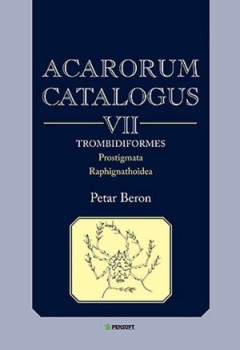
Acarorum Catalogus Viii
The eight volume of this series "Acarorum Catalogus" is devoted to Superfamilia Cheyletoidea (Cheyletidae, Psorergatidae, Demodecidae, Harpyrhynchidae, Syringophilidae) and Superfamilia Cloacaroidea (Cloacaridae, Epimyodicidae). About 1243 species of 177 genera are listed therein, with synonymies and citations in various papers. The book also contains a list of by-country distributions, type lo…
- Edition
- -
- ISBN/ISSN
- 9786192480424
- Collation
- -
- Series Title
- -
- Call Number
- -

Acarorum Catalogus Vii
The 7th volume of my series “Acarorum Catalogus” concerns the mite superfamily Raphignathoidea. The 12 families of this superfamily consist of 69 genera and some 1087 species and are being studied intensely, particularly by acarologists from China, South Africa, Turkey, Iran, Crimea and other countries or areas. Some members of the Raphignathoidea are suitable for biological pest control (G…
- Edition
- -
- ISBN/ISSN
- 9786192480073
- Collation
- -
- Series Title
- -
- Call Number
- -
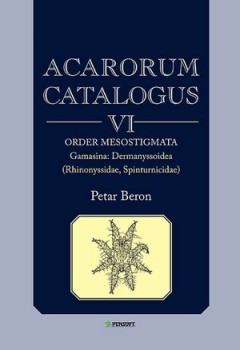
ACARORUM CATALOGUS VI. Order Mesostigmata. Gamasina: Dermanyssoidea (Rhinonys…
The sixth volume of this series "Acarorum Catalogus" is devoted to the families Rhinonyssidae and Spinturnicidae of the superfamily Dermanyssoidea. About 555 species are listed therein, with synonymies and citations in various papers. The book also contains a list of by-country distributions, type localities and lists of authors who published on any known species of Rhinonyssidae and Spinturnic…
- Edition
- -
- ISBN/ISSN
- 9786192480066
- Collation
- -
- Series Title
- -
- Call Number
- -
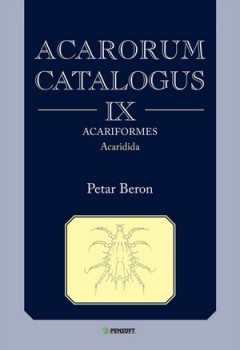
Acarorum Catalogus IX
The present 9th volume of the series Acarorum Catalogus contains lists of mites of 13 families, 225 genera and 1268 species of the superfamilies Schizoglyphoidea, Histiostomatoidea, Canestrinioidea and Hemisarcoptoidea. Most of these mites live on insects or other animals (as parasites, phoretic or commensals), some inhabit rotten plant material, dung or fungi. Mites of the families Chetochelac…
- Edition
- -
- ISBN/ISSN
- 9786192480585
- Collation
- -
- Series Title
- -
- Call Number
- -
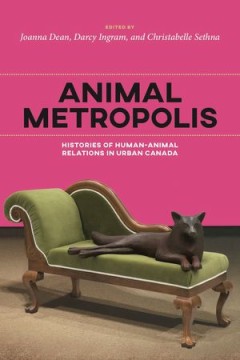
Animal Metropolis
Animal Metropolis brings a Canadian perspective to the growing field of animal history, ranging across species and cities, from the beavers who engineered Stanley Park to the carthorses who shaped the city of Montreal. Some essays consider animals as spectacle: orca captivity in Vancouver, polar bear tourism in Churchill, Manitoba, fish on display in the Dominion Fisheries Museum, and the racia…
- Edition
- -
- ISBN/ISSN
- 9781552388655
- Collation
- -
- Series Title
- -
- Call Number
- -
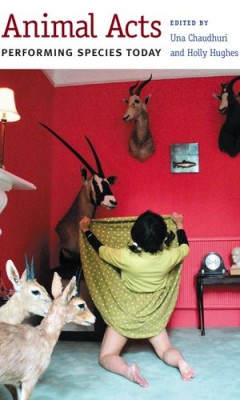
Animal Acts: Performing Species Today
We all have an animal story—the pet we loved, the wild animal that captured our childhood imagination, the deer the neighbor hit while driving. While scientific breakthroughs in animal cognition, the effects of global climate change and dwindling animal habitats, and the exploding interdisciplinary field of animal studies have complicated things, such stories remain a part of how we tell the …
- Edition
- -
- ISBN/ISSN
- 9780472901104
- Collation
- -
- Series Title
- -
- Call Number
- 792 ANI a
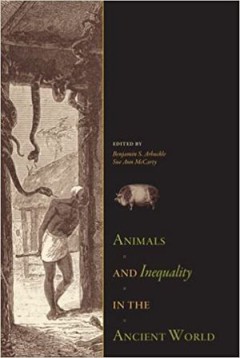
Animals and Inequality in the Ancient World
Animals and Inequality in the Ancient World explores the current trends in the social archaeology of human-animal relationships, focusing on the ways in which animals are used to structure, create, support, and even deconstruct social inequalities. The authors provide a global range of case studies from both New and Old World archaeology—royal Aztec dog burial, the monumental horse tombs of C…
- Edition
- -
- ISBN/ISSN
- 9781646422487
- Collation
- -
- Series Title
- -
- Call Number
- -
 Computer Science, Information & General Works
Computer Science, Information & General Works  Philosophy & Psychology
Philosophy & Psychology  Religion
Religion  Social Sciences
Social Sciences  Language
Language  Pure Science
Pure Science  Applied Sciences
Applied Sciences  Art & Recreation
Art & Recreation  Literature
Literature  History & Geography
History & Geography